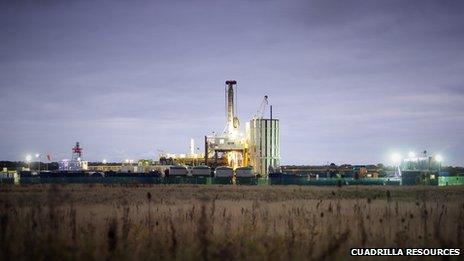Fracking in Lancashire 'may affect mental health', report finds
- Published
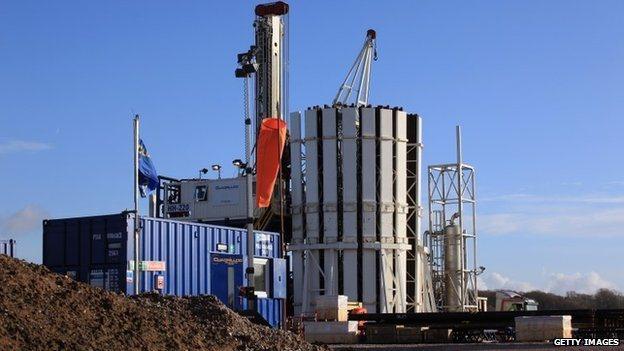
The report said noise from drilling could have health implications for nearby residents
Living near fracking sites could affect mental health and wellbeing, according to a new report.
The report, external, by head of Public Health Lancashire Dr Sakti Karunanithi, looked into the potential health impacts if fracking was permitted in Preston.
Energy firm Cuadrilla has applied to frack at two sites: Roseacre Wood and Little Plumpton.
Chief executive Francis Egan denied drilling for shale gas posed a health risk to local residents.
"Our activities themselves will not cause people to have health problems though I understand the stress [people are feeling] because they are hearing lots of scare stories about what we are doing."
Lancashire County Council, which has already delayed its decisions on the applications, discussed the report's findings on Thursday.
The report cites a lack of public trust and confidence, stress and anxiety from the uncertainty which could lead to poor mental wellbeing and noise from drilling could have health implications for nearby residents.
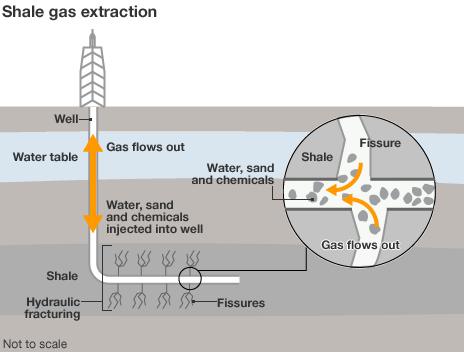
Dr Karunanithi, said: "While there is a lot of focus on the environmental health, it isn't actually a statutory requirement through our planning and regulatory regime to consider health and wellbeing holistically.
"Lancashire County Council is responsible for protecting the public's health, so amidst lots of concerns there was a need for us to understand what the potential impacts on health and wellbeing could be."
Council planning officials want the decision deadline to be put back until 31 December for the proposed site at Preston New Road in Little Plumpton and until 31 January for the site at Roseacre Wood.
Fracking - or hydraulic fracturing - is a technique in which water and chemicals are pumped into shale rock at high pressure to extract gas.
- Published23 October 2014
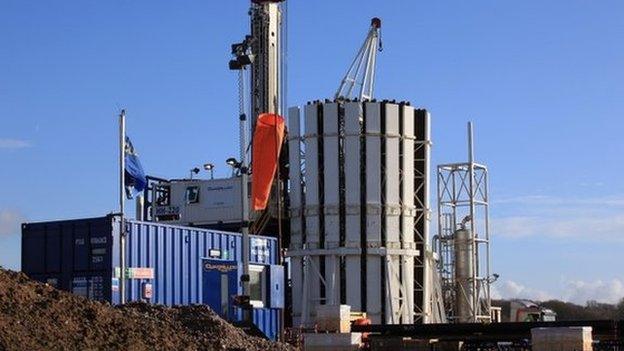
- Published17 June 2014
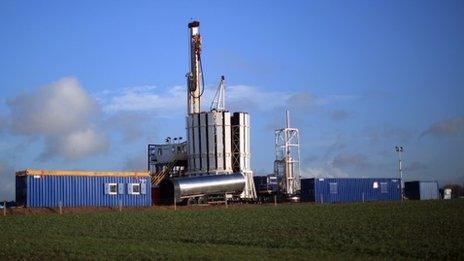
- Published24 February 2014
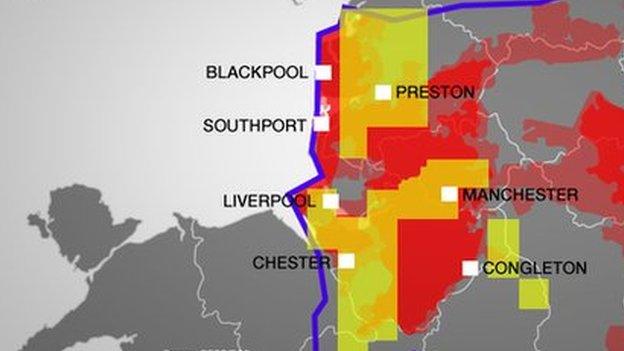
- Published4 February 2014
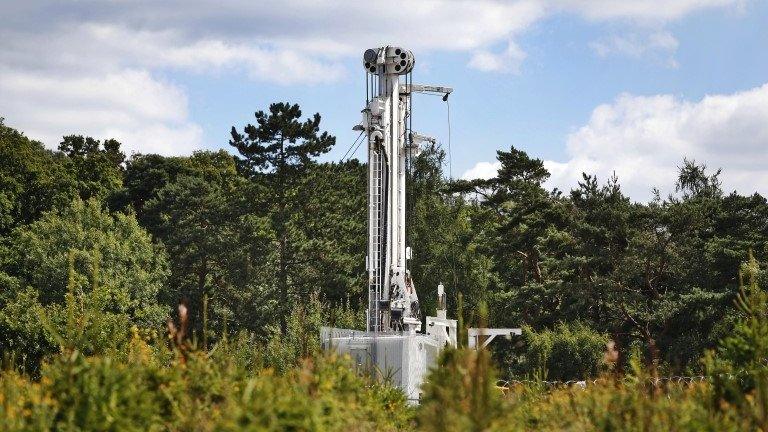
- Published16 July 2013
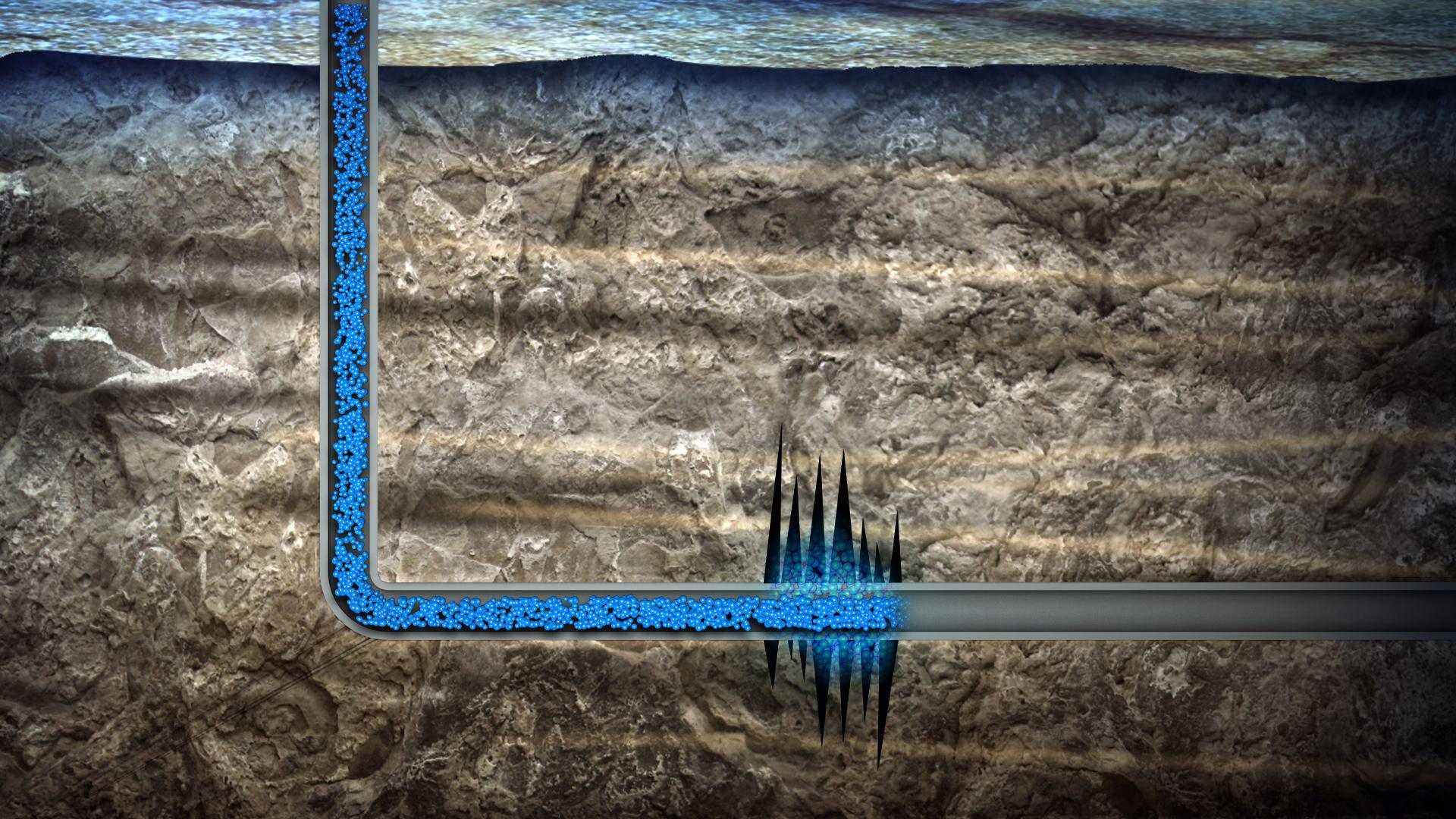
- Published13 December 2012
